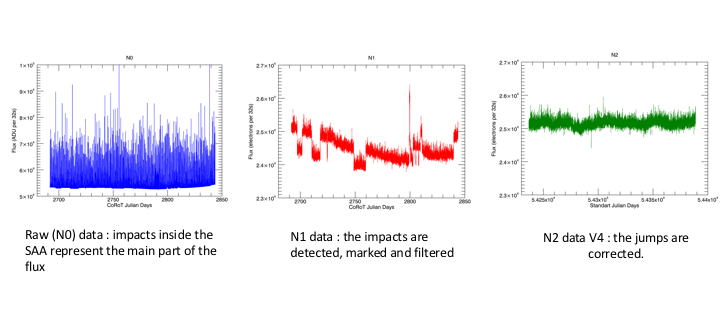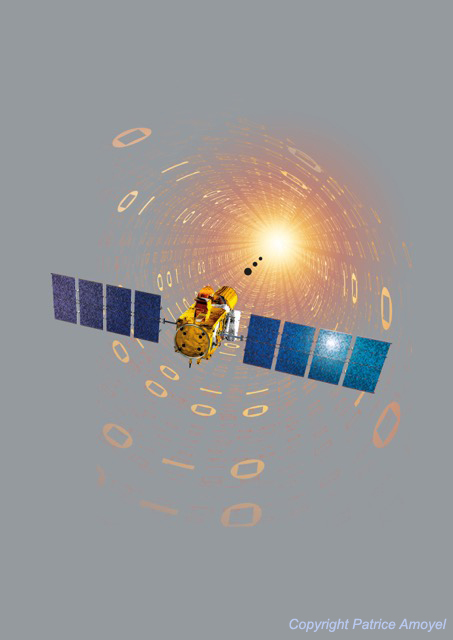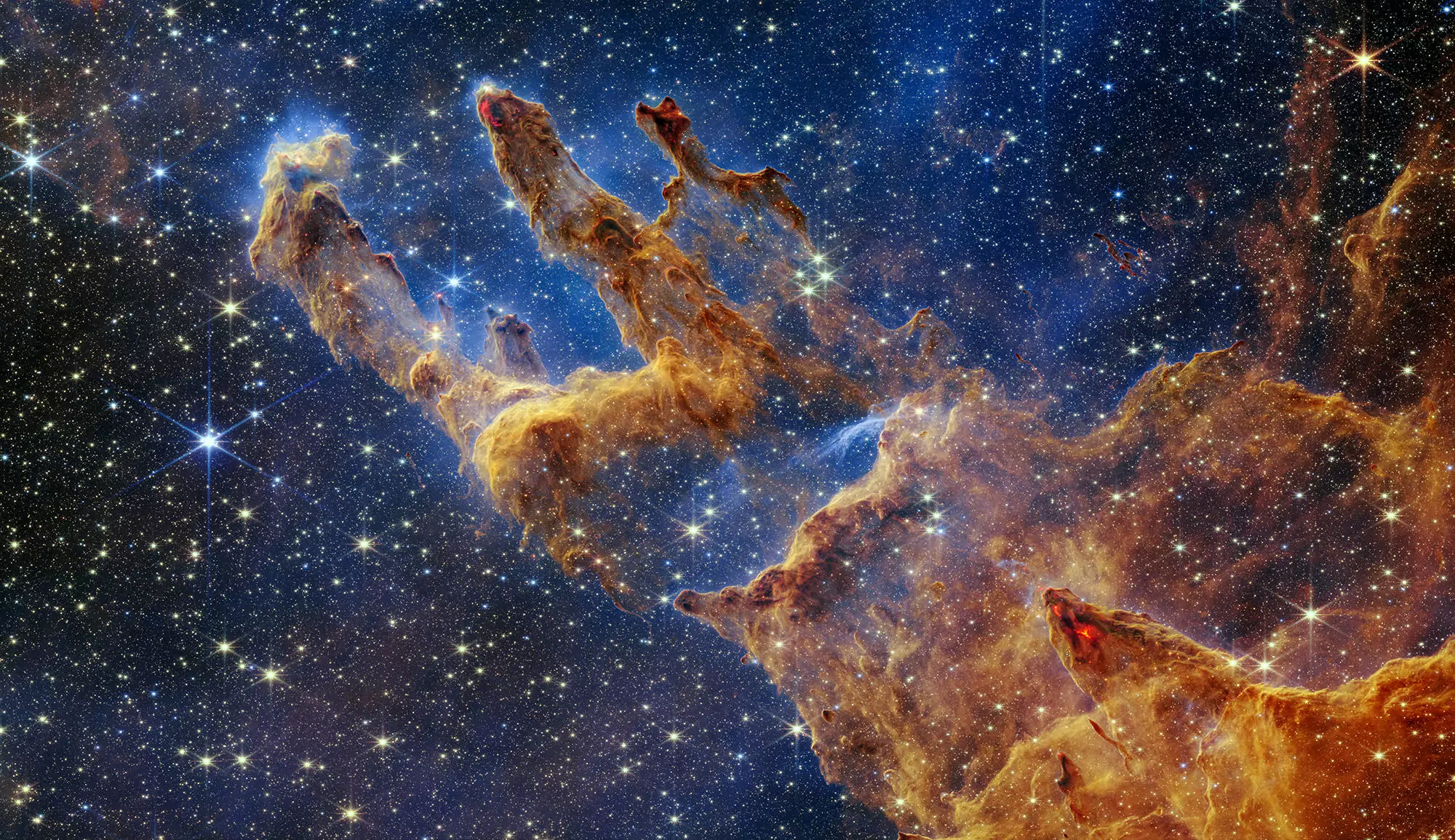This event finalizes years of work, during which the scientific team led by Annie Baglin, CNRS Research Director at the Paris Observatory, has managed to understand and to filter out the main artefacts generated by the instrument and the satellite, which contaminate the astrophysical signal of interest.
It was in particular essential to eliminate the signal discontinuities and peaks, produced by cosmic ray bombardment, as well as to correct for the effects of ageing of the instrument and the systematic biases of the detectors.

The light curves (measurements of sstellar fux as a function of time) of over 160 000 stars in our galaxy are now available for use by the international scientific community via the CoRoT mission archive, the Strasbourg Astronomical Data Centre, as well as via two mirror sites in the USA and in Spain.
They constitute a gold mine for the study of exoplanets, for the study of our galaxy, and moreover for research requiring extremely accurate stellar photometry.
This data constitutes a cornerstone for the preparation of the next generation of major space missions, and in particular of PLATO, the European successor to CoRoT.

Will soon be published « /The CoRoT Legacy Book/ », a work which describes the data and the techniques used to obtain it, the main results obtained to date as well as the next generation projects beyond Corot.
